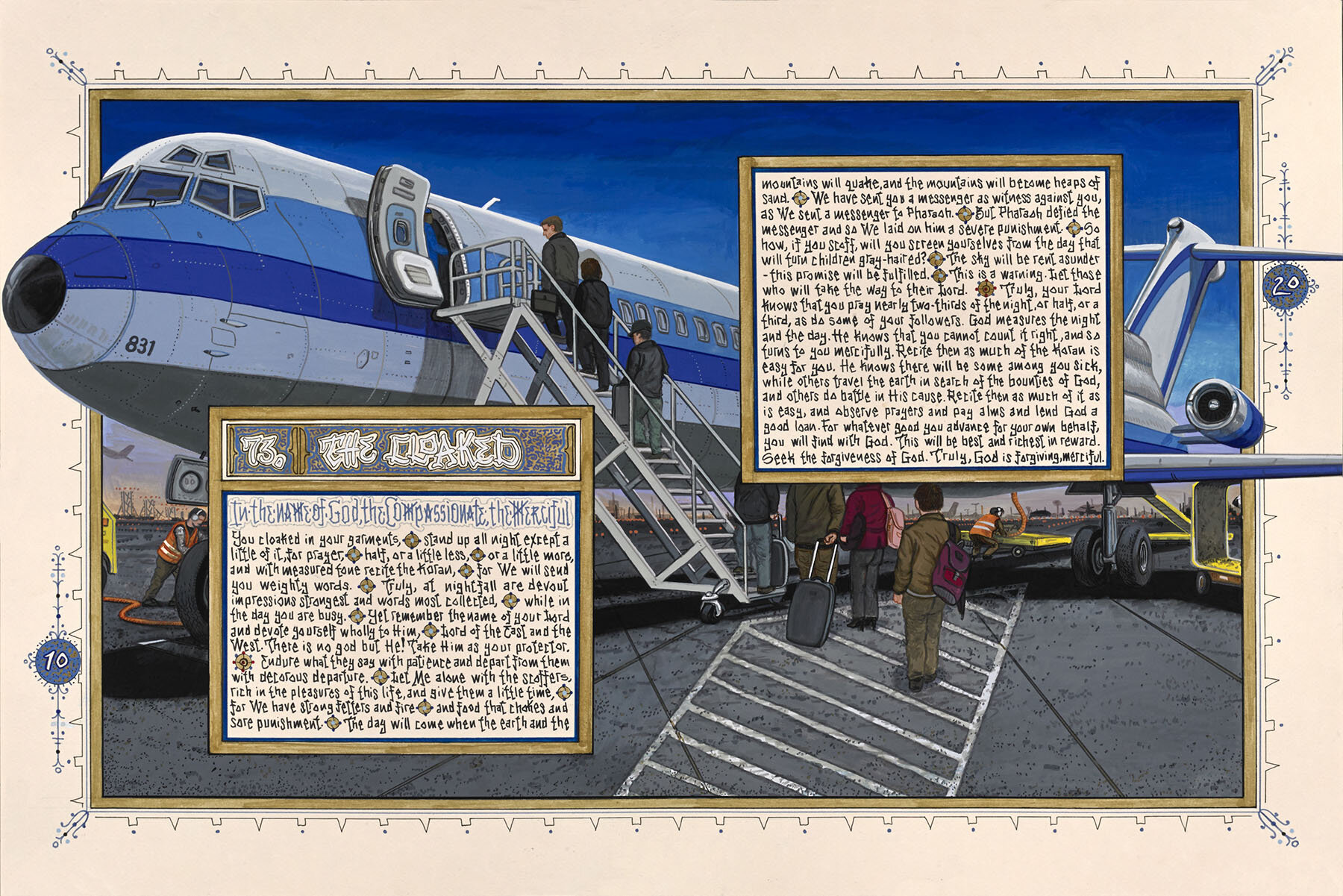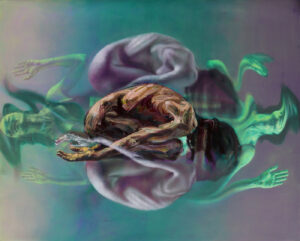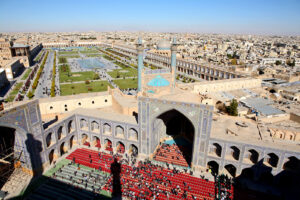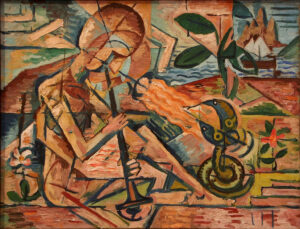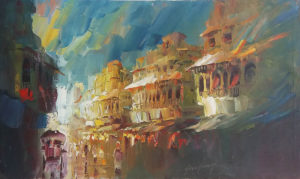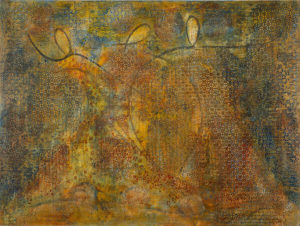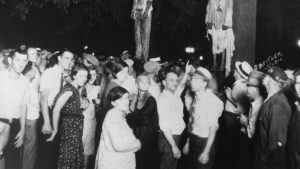The Bad Muslim Discount, a novel by Syed M. Masood
Doubleday (Feb 2021)
ISBN 9780385545259
Rayyan Al-Shawaf
Despite the title of Syed M. Masood’s second novel, which flirts exhilaratingly with all manner of skepticism before retreating into timid conventionality, there is no “bad Muslim discount.” If there were, Anvar Faris would have earned it, despite a perennial coyness when it comes to revealing the extent of his heterodoxy to orthodox coreligionists. “You know,” he teases his pious (and humorless) mother, who chides her son that his disregard for regular religious observance will consign him to you-know-where, “I’m actually going to start praying that I don’t end up in hell, just because I want you to be wrong. I’m going to be the only person in heaven who got there out of spite.”
Well-deserved discounts for bad Muslims aside, Anvar has to settle for the price reduction his landlord Hafeez offers the opposite kind of Muslim: the good kind. Anvar has developed — in large part inadvertently — a reputation as just such a person. It’s not a shabby deal, as it turns out, because Hafeez’s seedy San Francisco apartment complex is where Anvar makes the acquaintance of Azza, a young Muslim woman who is mysterious, troubled, and, perhaps most importantly, the other protagonist of The Bad Muslim Discount.

Masood brings this artifice into play not a moment too soon. For until almost halfway through the story, Anvar and Azza inhabit separate countries — for much of the time, separate continents — and, as they have no shared past, propel discrete story streams. The latter’s confluence is not without mildly disruptive ripples, but soon generates a swift and focused current. Moreover, well before that happens, both story streams buoy us along and keep us guessing as to how Anvar and Azza will wind up in each other’s lives.
The sure-handed manner with which Masood shapes Anvar’s tale (to say nothing of the humor with which he injects it) contrasts with the detached and self-constricting way he crafts Azza’s — at least before her move to the US. This is all the more apparent given that Azza, like Anvar, recounts her experiences in the first person. Perhaps the issue has to do with the extent to which the author is familiar with what he describes. Masood, who lives in Sacramento, grew up in Karachi. Even though Anvar’s family packs up and leaves that city one chapter into the story, when he has just entered his teens, Masood brings its streets, sights, and sounds to life. Azza’s time in her native Iraq (Baghdad and Basra), followed by a remote Pakistani village on the border with Afghanistan, covers several chapters and several years, yet almost all of the action takes place indoors or in the immediate exterior of the house. The ostensible reason for this is variously the security situation in Iraq, her father’s stern religiosity, and the patriarchal culture in the Pakistani border village — but that does little to mitigate the flattening effect of the author’s rendering of setting.
In a way, Masood compensates for the imbalance by making Azza more worthy than Anvar of our respect. Azza does not simply prove stoic in the face of what would crush many a young man or woman: the death due to illness of a mother followed by that of a brother, war followed by the disintegration of her country, a betrothal she cannot refuse because her prospective husband has blackmailed her, and, most significantly, an already severe father who turns violent following his torture at the hands of US forces in Iraq. She goes further by refusing, as a young woman in San Francisco, to let her father’s treatment of her extinguish a stubborn flicker of compassion: “He was the last person I loved, even if I did so bitterly,” Azza says. “I was able to feel sorry for him, even though the world had cut me much more deeply than it had cut him. He still had a scar and so he was entitled to sympathy, and it felt like I was as well.”

Even more admirable? Azza begins to claim her life as her own. In San Francisco, she enrolls in college and, unbeknownst to her father, initiates a sexual relationship with Anvar. As for Anvar himself, he has by this point shown us time and again that, even as an adult, he cannot muster the requisite fortitude to defy a mother who may be domineering, but is certainly not violent. For example, he keeps his years-long college romance with Zuha a secret. (To be fair, Zuha does the same with her parents, who are similarly conservative.) At least he embarks on the relationship, which eventually sours when Zuha herself turns toward religion, because he wants to do so. After all, his later choice of the law as a career stems in large part from a feeling that it is “time, perhaps, to fulfill the dreams of other people.” That career proves short-lived, though in launching a principled yet ultimately unsuccessful stand against his country’s contention that it has the right to assassinate a US citizen who has moved abroad and joined a foreign terrorist organization, Anvar earns much respect among the likes of landlord Hafeez — hence the discount.
By bringing the abused and driven Azza into the irresolute and dispirited Anvar’s life (and bed), Masood introduces a welcome element of risk into the story. He then ramps up that risk by having Azza devise a plan by which she might free herself of her cruel prospective husband and also escape the clutches of her oppressive father. The catch is that she needs Anvar’s help. Masood simultaneously has Anvar, still pining for Zuha, learn that she is about to willingly enter into an arranged marriage with his straight-laced and puritanical brother Aamir, who has no inkling of their past romance. And when the author pans out, as he does every so often, to reveal the larger picture, the tension increases even more. Here is Anvar observing the reaction of his father, a warm, winsome, and perceptive man, to Trump supporters on the eve of the 2016 US presidential election:
“He already knew these people and had run from them before. The great intellectual plague on the Muslim World was the continuing belief that as a civilization our fortunes had declined because we had strayed from the Word of God. It was the call to Make Islam Great Again, to return to the strict religiosity that had reigned in the seventh and eighth centuries, that had made my father pack us up and leave the country of our birth. ”
There is a tidiness to this story’s ending, one whose too-well-rounded contours even Masood’s cutting humor cannot sharpen. For all the skepticism with which the author treats both the American Dream and the notion of Islam as a guide to the proper life, eventually he relents and cedes ground to both (though the American Dream bit is admittedly seasoned with Canadian flavoring). This about-face enables him to fashion a feel-good denouement. But it also dulls a double-pronged critique that is one of the novel’s strongest suits. Following a climax replete with a level of violence and near-tragedy that befits such a tale, The Bad Muslim Discount takes a turn that is inevitably anti-climactic and that also manages to clash with almost everything that precedes it, all seemingly for the sake of satisfying our innate desire for happy endings.



